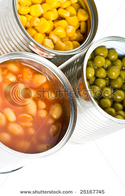BPA controversy continues
12 January 2011The pressure on both sides of the BPA debate looks set to intensify in 2011, writes Joanne Hunter.
Science does not always give the clarity to complex issues that legislators, politicians, industry, lobbyists and the general public would like to have. So far, the best efforts of experts have been unable to help draw a line under the debate on the safety, or otherwise, of the chemical substance bisphenol A, or BPA. Historically, BPA has been used in packaging for its various functional properties. Especially food manufacturers need certainty to maintain a reputation for having high regard for consumer wellbeing. With legislation itself adding to the controversy, brand owners are proceeding with caution.
BPA resin among its many uses is sprayed on the inside of cans of food and fizzy drinks and in bottles made from polycarbonate plastic. In particular, its presence in bottles for water and baby milk has caused a long, hot global debate. Scientific opinion is split, but many experts believe BPA is an endocrine disruptor that can affect hormones and link BPA to human illnesses including heart disease and breast cancer.
In November 2010, the European Commission placed a ban on the use of BPA in polycarbonate baby bottles. The final (7th) amending Directive to the outgoing Plastics Directive 2002/72/EC says member states must declare their intended national measures by 31 January aimed at banning manufacture from 1 March 2011 then marketing and importation from 1 June 2011.
As David Smith, Technical Manager of the Metal Packaging Manufacturers Association, explains: “This special measure amends the entry for bisphenol A (BPA) – a major starting substance for the manufacture of polycarbonate plastics - in the list of permitted starting substances for food contact plastics with the qualification ‘Not to be used for the manufacture of polycarbonate infant feeding bottles’.”
Mr Smith notes: “A number of European trade associations have expressed opposition to what they believe to be a largely politically-motivated measure, with other potential ramifications, but further by the fact that a voluntary phase-out of polycarbonate baby bottles was underway anyway in Europe and beyond.”
Divided opinion
The plastics industry body PlasticsEurope has highlighted the absence of new scientific evidence to warrant the BPA ban in baby bottles.
But the Health and Environment Alliance, an EU advocacy group, wants the ban go further to include all packaging for infants under three years old and extended to all food packaging.
Some companies are acting cautiously and removing BPA from food tins. Heinz has committed to switching to alternatives and is removing it from baby food in the UK. Nestlé plans to stop using BPA in its products in America within three years. General Mills, maker of the Green Giant canned food brands, has rid its Muir Glen tomato range of BPA, and Campbell Soups is reported to be testing alternatives.
For its 2010 report, Seeking Safer Packaging, the US investment fund Green Century Capital Management surveyed 26 food companies and found half of them indicated a commitment to ending use of BPA, compared to 23% the previous year. More than 20 US states have legislated to restrict BPA use and Canada has listed it as a toxic chemical.
Not all European countries have accepted the European Food Safety Agency's latest position, released in September 2010, that the tolerable daily intake (TDI) should not be lowered. Denmark has banned BPA in products for children up to three years old; while France has already banned the substance in baby bottles.
Latest move
The end of 2010 saw the proposed Plastic Implementation Measure (PIM) passed to the next stage unopposed by the European Council of Ministers. Officially, it is known as the draft regulation (14262/10) on plastics materials and articles intended to come into contact with food, due to come into force in May 2011. It aims to tighten up migration testing to cover ‘worst foreseeable conditions of use and the toxicity’.
With this move, the BPA debate looks set to intensify in 2011.
BPA alternative for non-foods
A renewable ingredient called isosorbide, heralded as a potential substitute to BPA in the non-foods sector, has been put on the market in the USA by Archer Daniels Midland Company (ADM).
Isosorbide is targeting a swathe of industrial uses: in packaging; in polyesters for inks, toners, powder coatings; and in polyurethanes for foams and coatings, claims an ADM statement. It does not have approval for food contact applications, confirms Beth Chandler, a spokesperson for ADM.
Robert Broomham, Business Director, ADM Industrial Chemicals, says: “With increased interest in environmental improvement, we see growing opportunity to expand our portfolio of renewable industrial products.”
Acting with caution, some brand owners are banning BPA from food cans. BPA


